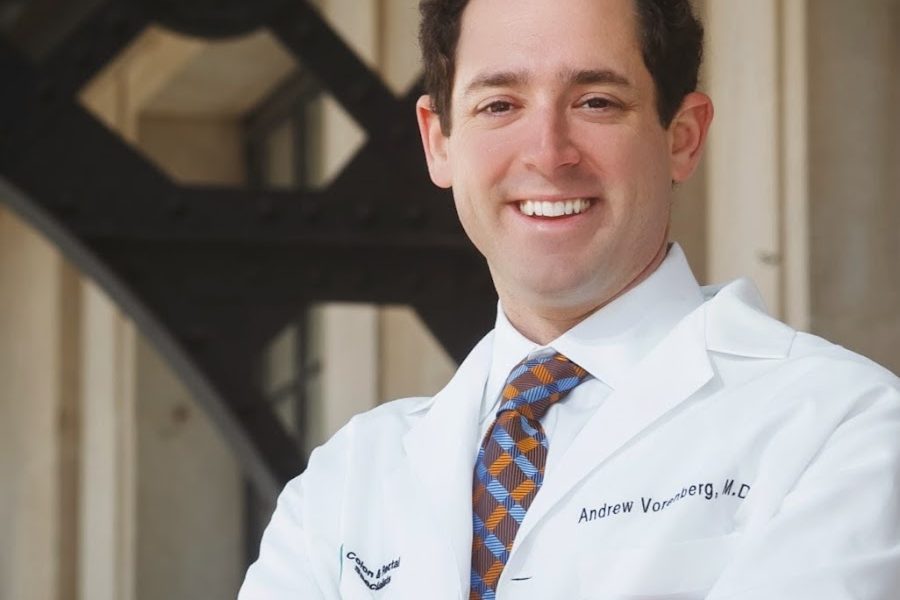People recovering from cancer and other types of surgery are being urged to consider a “simple, tried-and-true” remedy …. chewing gum.
Leading physician Andrew J. Vorenberg says “space-age technology” can help but so too can something like gum.
“That”, he says, “is because the chewing reflex stimulates the gut and gets the digestive tract moving again, thinking food is coming.”
A recent study published by the American Association of Cancer Research showed a surprising and alarmingly steep rise in late-stage colon and rectal cancer among young adults.
Based on 16 years of data from 104,000 patients, the highest increase was reported in 20 to 29 year-olds, whose rate of distant stage rectal cancer rose a staggering 133%.
Colorectal (also known as bowel) cancer is the 3rd most common cancer worldwide. It is the 3rd most common cancer in men and the 2nd most common cancer in women.
There were more than 1.9 million new cases of colorectal cancer in 2020.
The EU accounts for eight of the 10 countries with the highest rates of colorectal cancer and the highest number of deaths from colorectal cancer in 2020. They are Hungary, Slovakia, the Netherlands, Denmark, Slovenia, Portugal, Latvia and Croatia.
Dr Vorenberg told EU Political Report that more research should help us understand why the colorectal cancer is now affecting those in their 20’s and 30’s so aggressively.
For more than a dozen years, he has specialized in the treatment of anorectal and intestinal disorders, including colorectal cancer, which is one of the world’s deadliest —and one of the most common. According to WHO, almost 2 million cases were diagnosed world-wide in 2020, and nearly 1 million lives are lost to it each year.
Vorenberg, an American surgeon specializing in the treatment of colon and rectal cancer, told this website, “As any surgeon will tell you, nothing matters more than the ability to help patients with serious conditions realize full recoveries that allow them to return to their daily lives. Like most surgeons, I continue to be impressed by the dizzying array of new technologies at our disposal—such as the minimally invasive robotic surgery I use every day, which employs the latest advancements in surgical instrumentation to improve patient outcomes and satisfaction.
“I appreciate the space-age technology, and my patients benefit from it. But sometimes, it’s the simple, tried-and-true things that can be amazing—and help lead to superior results. And, since simpler remedies often come at far less cost and far greater convenience to the patients we are dedicated to serve, it’s easy to take them for granted or overlook altogether. We shouldn’t,” added Dr Vorenberg, who also specializes in laparoscopic colon surgery and the diagnosis and treatment of intestinal and anorectal disorders.
He adds, “For instance, I often prescribe my patients a very simple painkiller after surgery—usually Tylenol or ibuprofen. Many in the medical community were wowed when stronger narcotics like opioids became available. While an important tool in pain management, these so-called “miracle drugs” turned out to be a double-edged sword with an unexpected social cost. We also discovered that they have gut-slowing properties that can make recovery from surgery more difficult. That’s why many doctors now prescribe non-opioid analgesics that are often just as effective at minimizing pain without the habit-forming or gut-slowing side-effects.”
He went on, “And since kick-starting the normal gut function is so important after surgery, I have started feeding patients much sooner in their recovery too. That’s because the chewing reflex stimulates the gut and gets the digestive tract moving again, thinking food is coming. Sometimes, this can be achieved with real food—something as common as a handful of pretzels. I prescribe another simple intervention: chewing gum.”
He said, “And I am not alone. There is a growing body of evidence about gum’s benefits for patients recovering from many procedures that involve gut health recovery—from colorectal surgery and heart surgery to hysterectomies and C-sections. In addition to helping “wake up” the bowels, gum can assist in preventing postoperative complications that result in nausea, abdominal distension, and extended hospital stays. There is mounting evidence that chewing gum carries benefits before surgery as well, with one recent study showing how it can reduce anxiety in fasting pre-operative patients (building on previous research about how it can promote a greater sense of well-being overall with less stress, anxiety or feelings of negativity.
He commented, “Speaking from personal experience, my patients frequently report chewing gum as a source of comfort both before and after surgery. Part of the reason is that the act of chewing itself is one of the most basic pleasures in life. It not only adds a sense of normalcy to an otherwise stressful experience before an operation but can feel like a luxury after. It’s also a welcome alternative to yet another pill or invasive procedure.
“While prevention should be our goal—just screening all adults 45 and older could save thousands of lives each year —once the colorectal cancer is diagnosed, we should ensure the best possible outcome. If something as simple and inexpensive as a stick of gum—or a Tylenol or a few pretzels—can make a real difference in my patients’ health and finances, then that’s just what I’m going to do.
Dr Vorenberg, who is based in Richmond, VA, added, “Our duty as practitioners is to combine the best new technologies without ignoring simple common-sense solutions. This is a mantra that my colleagues and I try to live and work by every day. Of course, the cutting-edge robotics technologies we employ are fantastic, and I look forward to what improvements the future will bring to us next. But if our goal is to improve outcomes and overall well-being for our patients with the greatest access and lowest costs, then it also pays to think small.”




